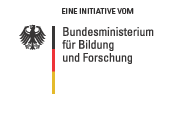Wilfried Weber Tracking down the signalling pathways
-
 <ic:message key='Bild vergrößern' />
<ic:message key='Bild vergrößern' />
- Wilfried Weber has accepted a professorship in synthetic biology at the university of Freiburg. Quelle: University of Freiburg
10.08.2009 -
At the entrance to the BioMed Foundation's newly established laboratory wing in their BioTechPark home in Freiburg, the only thing that might indicate the major research taking place is a small sign bearing the word "bioss". As part of the bioss Cluster of Excellence, Wilfried Weber (35) - a Professor of Synthetic Biology since the beginning of this academic year - and his research group are researching signalling pathways in cells.Among their objectives is the production of therapeutic proteins and the elimination of resistance to common antibiotics.
The scientists are not just interested in analysing signalling pathways in the cells of bacteria and mammals, they also want to construct signalling pathways of their own. "If a signal path of this kind actually works and the cell produces the desired proteins, then we can be sure that we have correctly understood the signals," says Weber. Biochemistry's fascinating and application-oriented blend of biology and chemistry caught the imagination of the young scientist during his undergraduate studies in Tübingen. Weber took French courses to prepare himself for the tri-national biotechnology degree course in the Upper Rhine. After bringing about an 80-percent cost reduction in protein production at the company Novartis with the results of his thesis, he promptly returned to the academic fold.
The right dose of therapeutic proteins
At the Swiss Federal Institute of Technology Zurich he then undertook an application-oriented doctorate in biotechnology, bringing him closer to the analysis of cell components. "We were looking for new expression systems in cells to be able to properly regulate doses of therapeutic proteins," says the scientist. Weber chose erythropoietin, which is mainly formed in the kidneys, as a model protein. Individuals lacking this glycoprotein can suffer from anaemia. "It is very important to get the right amount into the bloodstream," says Weber. In the meantime, his research with cell cultures and animal models has succeeded in reprogramming the cell's signal system so that it releases an optimal dose. "We have access to the switch in the cell that turns production on or off."
Signalling pathways also play a role in treatments that use antibiotics. Many bacterial strains have evolved so much that conventional antibiotics are powerless, meaning that, among other diseases, more dangerous variants of tuberculosis are on the increase. The hunt for new antibiotics is costly and frequently unsuccessful, but Weber and his team offer another approach. "We are working on eliminating resistance in bacteria, so that the signal chain for the defences against the antibiotic are interrupted." The bacterium longer recognises the antibiotic, and is defenceless."
Strawberry flavoured resistance blocker
In their tests with 2-phenyl-butyrate - a strawberry flavoured food additive that is not toxic for humans - the biotechnologists were able to eliminate bacterial resistance to a specific antibiotic. As a control, the bacteria were brought into contact with the antibiotic, after which it continued to grow unabated. The results were similar when in contact only with butyrate. When Weber's working group applied the food additive and the antibiotic together, bacterial growth was halted, with no further signs of resistance to the antibiotic.
The tuberculosis-causing bacterium represents a particular challenge for the scientific community, as it can protect itself extremely well in the human body against destruction by scavenger cells. "To be able to interrupt this pathway is a classic example of synthetic biology," says Weber. For his work, the Swiss Foundation for Tuberculosis Research has awarded Weber with the TB Award 2009, worth 10,000 Swiss francs. A spin-off from the ETH - encouraged by the prize - is pursuing further development to clinical application.
"I'm only a consultant for this," said Weber, who, alongside his bioss research, is still active in teaching. "The students show a great deal of interest in synthetic biology," says Weber. There is already a graduate seminar in the highly interdisciplinary subject, and a course concept is taking shape. It's clear that there's not much time remaining for extracurricular activities. Weber's wife is also a busy professional, and any spare time is spent looking after his three children, aged one, three and five. "The family provides a wonderful balance for my work, and vice versa - I take pleasure in my time in the lab." Thanks to the support of the whole bioss team, the laboratory was set up in record time. "I am extremely grateful for this."
Author: Eva Opitz


